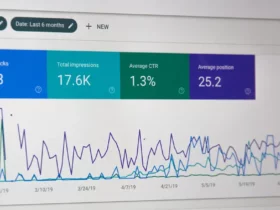Keyword research is an essential element of your marketing campaign.
When it comes to your SEO strategy, it should be at the forefront of your mind. If you are writing about things that your target audience is not interested in, you will not drive traffic to your website.
To ensure your business shows up higher than competitors on search engine result pages (SERPs), you will need to conduct effective B2B keyword research.
This is why it is crucial to understand what your prospects are looking for and use it to your advantage to create quality content.
Today we will cover key tips and tricks you can use to generate more leads for your B2B business.
Focus On Your Niche
The first step is to analyse your niche and determine how your customers see your brand, products, and services.
For example, you can achieve this by connecting with both existing and potential customers.
Be sure to ask them about different terms that they would use to describe your business, brand, or culture.
This will help you understand the perspective of your audience and examine their behaviour.
Another useful idea can be to visit various forums and explore the types of questions that people ask about your industry.
You can then connect these queries to the solutions that are offered by your company.
Compile A Seed List
Once you have taken the time to study your niche, it is best to develop a list of seed keywords. Seed keywords can refer to different topics that your target audience searches online.
To ensure you create a comprehensive seed keyword list, you can look for professional support.
For example, Moda.digital is a leading digital growth agency that specialises in SEO services in Glasgow.
They can help you with your B2B keyword research by optimising your strategy.
Remember that gathering these keywords is essential to your entire keyword research and can act as a great starting point.
Audit Your Competition
Next, it is important to evaluate the keywords that your competitors are ranking for. This is an effective strategy, as it can save you time finding the best keywords to boost website traffic.
Firstly, you will need to determine who your competitors are on search result pages.
You can try placing seed keywords on Google and list the top ten competitors that come up.
This approach will also help you identify any gaps between the keywords your company is ranking for and the ones that your competition is optimising for.
Find Long-Tail Keywords
Although at this point you will have a list of relevant keywords, you will need to continue your research.
This is because not every person from your audience will use the same terms on search engines.
You will need to identify longer and more specific phrases that are connected to your seed keywords.
These are also known as long-tail keywords that people are more likely to use during their search queries. To do this, you could simply look at Google suggestions and discover what users are looking for in relation to your keywords.
Alternatively, you can also use Google Keyword Planner for more ideas.












